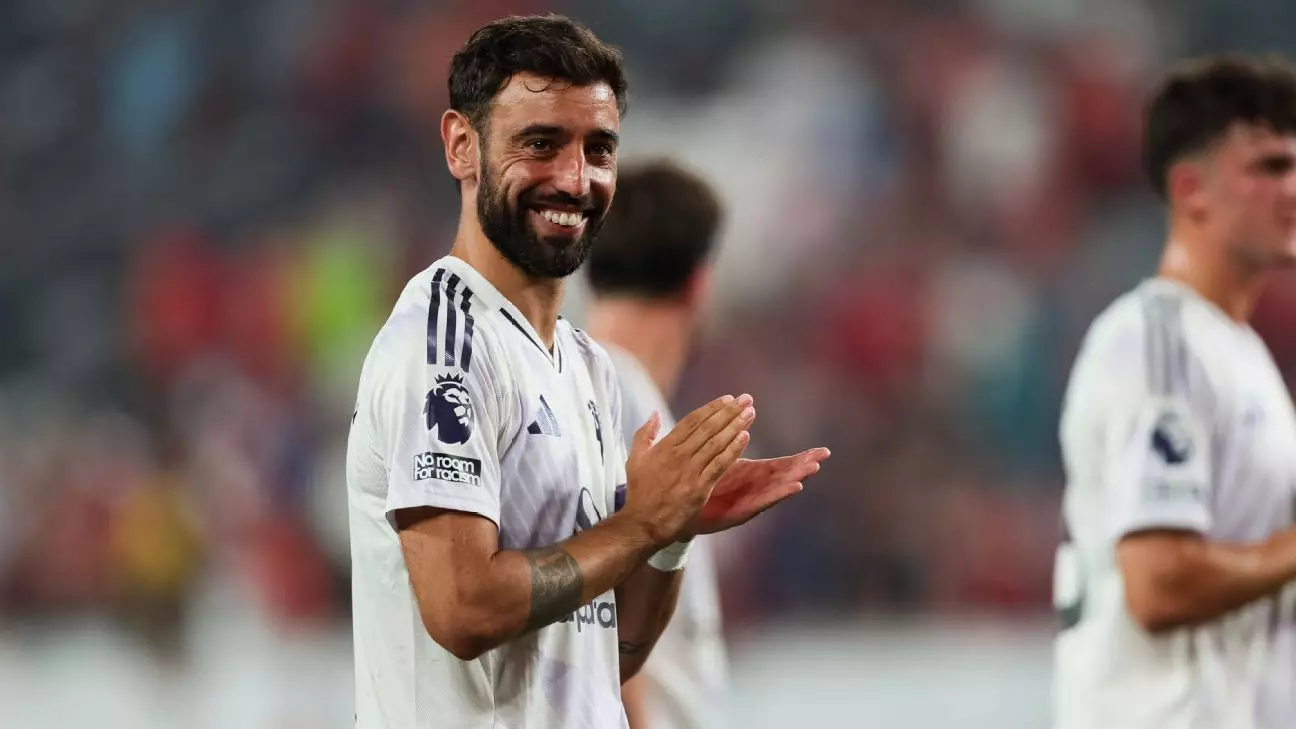In the often unpredictable world of Premier League football, few players exhibit the resilience, leadership, and technical brilliance that Bruno Fernandes consistently displays. This summer, the question loomed: Would Fernandes depart amidst lucrative offers from distant leagues, or would he reaffirm his commitment to Manchester United? His decision to remain has proved pivotal, not only on the pitch but also in restoring the club’s confidence and energy. Fernandes embodies the very essence of a transformative player—someone whose influence transcends statistics, inspiring teammates and galvanizing the club’s fighting spirit.
As United embarked on their U.S. tour, Fernandes showcased why his presence is invaluable. His goal-scoring ability was on full display—scoring from the penalty spot and curling a superb shot from outside the box. These moments are more than highlights; they symbolize the vital role Fernandes plays in shaping United’s attacking identity. His leadership was palpable, especially considering the uncertainty surrounding his future. His choice to stay signals a deep-seated belief in the club’s potential, which radiates through his performances and attitude.
The Strategic Role and Leadership Dynamics
Fernandes’s evolution under new management highlights the strategic value he offers. Under Ruben Amorim’s guidance, Fernandes has transitioned from a primary playmaker to a versatile figure capable of adapting to multiple roles. Last season, he was often deployed as a deep-lying midfielder—an arrangement that showcased his tactical intelligence but also perhaps limited his scoring opportunities. This pre-season, however, he’s been positioned more offensively, reaffirming his identity as a goal threat and creative catalyst.
Fernandes is not just a scorer but a leader—both on and off the field. Amorim’s assessment underscores Fernandes’s influence, describing him as a figure whose work ethic and exemplary conduct set a standard for the squad. His willingness to involve others signifies a matured understanding of his role within the team’s broader strategy. Yet, the coach also recognizes Fernandes’s occasional frustrations, hinting that even the most committed leaders grapple with internal pressures. Such honesty reflects the high expectations placed upon him and his importance in United’s fabric.
The Challenges of Leadership and the Path Forward
No player is perfect, and Fernandes’s journey has been marked by moments of emotional intensity and focus challenges. He sometimes pushes himself too hard, risking burnout or lapses in concentration. Amorim correctly suggests that Fernandes needs external support, which indicates that leadership within Manchester United is a shared responsibility. The club’s growth depends not solely on Fernandes but on cultivating an environment where his talents can flourish without undue pressure or overextension.
Fernandes’s story exemplifies the complex nature of modern footballers who are expected to deliver game-changing moments consistently while maintaining composure and strategic discipline. His arrival at Manchester United has revitalized their attack, but it is his evolving maturity that will determine whether United can truly ascend to their former heights. As fans and pundits alike look towards the upcoming season, Fernandes’s resolve, skill, and leadership will undoubtedly be the main influences shaping United’s trajectory—whether upward or stagnating depends in large part on his ability to balance personal ambition with team-centric goals.

